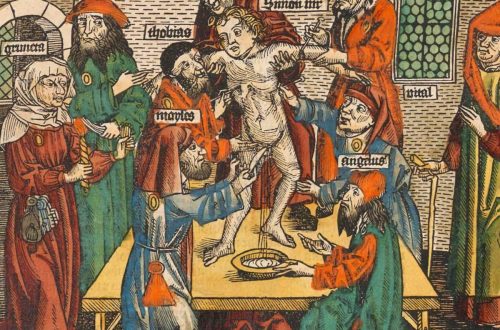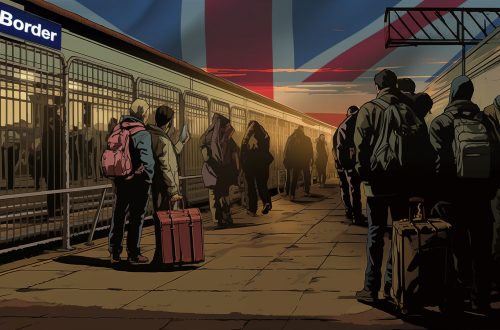Cross-posted from Eric Lee at TULIP
Britain’s Trade Union Congress (TUC) has ended its annual conference with a call on its affiliates to review any bilateral relations they might have with Israeli organisations.
According to an amendment proposed by the PCS civil service union, “Congress calls on all unions on the basis of this policy to review their bi-lateral relations with all Israeli organisations, including Histadrut.”
Presumably this call also covers relations British unions might have with pro-worker NGOs such as the Workers Advice Center (WAC), Kav LaOved, Koach LaOvdim, and others – including the pro-peace NGO One Voice, which has been backed by UNISON.
There is no call to review bilateral relations with organisations in any other country, including Palestine.
This marks a further shift toward a pro-Iran position within the British trade union movement, as it is the Iranians and their proxies in Hamas, Hizbollah, and the UK-based Palestine Solidarity Campaign, who are leading the charge to delegitimize the Jewish state.
Previously, the TUC took a position of encouraging a two-state solution and working with both the Histadrut and the Palestine General Federation of Trade Unions to achieve that goal.
The move did not go unchallenged. At least three unions opposed it, and according a report we received from Trade Union Friends of Israel, RMT union president Alex Gordon said:
“This is against workers solidarity in their class struggle in Israel….. We cannot support the review element of the motion on this basis and we should be working with organised workers organisations not investigating them”.
It should be noted the the Histadrut and PGFTU continue to cooperate with each other, and both organisations remain respected affiliates of the International Trade Union Confederation (ITUC). Histadrut leader Ofer Eini is even a vice president of the ITUC.
As recently as three years ago, the TUC was on record supporting relations with the Histadrut — and did not support the Iranian-backed campaign of boycotts, divestments and sanctions (BDS). But all that has changed.
What exactly has the Histadrut done to merit this “review”?
In recent months, the Histadrut has played an active role in the new mass movement calling for social justice in Israel, a movement that has brought hundreds of thousands of people – mostly young people – into the streets of Tel Aviv and other Israel cities.
It is an unprecedented development in Israel, and one which has been compared to the “Arab Spring” in its significance.
The TUC has decided to cut itself off from the Israeli labour movement at precisely the moment when social and economic issues top the agenda in that country, when there is a chance for the first time in a generation to create a broad-based movement for equality and social justice.
In last week’s primaries to choose the leader of Israel’s Labour Party, the two leading candidates – now heading for a run-off – represent a new and more vibrant Left, one focussed on social and economic justice. One of them is former Histadrut leader Amir Peretz.
Proponents of the the TUC position will say that they do not like the views expressed by the Histadrut on the so-called Gaza “aid flotilla” (it was nothing of the kind) or Israel’s defensive strike against Hamas rockets in 2009’s Operation Cast Lead.
But they neglect to mention that the Histadrut view was, broadly speaking, the view of the Israeli people including its peace movement.
Peace Now did not bring thousands of Israelis into the streets in 2009 to protest the attack on Gaza as they did during the 1982 Lebanon war.
They, like nearly everyone in Israel, understood the need to bring an end to the constant rocket attacks on Israeli civilians coming from Gaza.
Britain itself has fought the occasional controversial war (think Iraq for example) and the TUC has not always rushed to distance itself from the government.
Indeed, Britain’s unions have generally been fairly uncritical of the country’s military actions.
Union-supported governments (under Tony Blair and Gordon Brown) saw Britain commit troops to combat on three continents. The TUC did not criticize those wars.
Yet no one in the trade union movement elsewhere called for a review of bilateral relations with British unions over this.
Because that is not how we do things in the international labour movement. We do not punish trade unions for the policies of the governments of their countries.
We do not do so even if those unions may support those government policies — as most American trade unions did during the Vietnam war.
Even then, no one called for a review of bilateral relations with American unions.
Israel is being singled out, and the Histadrut is being isolated, because that is what the Iranian regime wants – and it using not only its proxies in Hamas and Hizbollah to do so, but its arm in the British trade union movement – the Palestine Solidarity Campaign.
The PSC has successfully pushed British unions to uncritically embrace the view of the rabidly anti-union dictators in Tehran regarding Israel and its trade unions.
The result of this will not be that the Histadrut suddenly changes its minds and adopts a pro-Hamas position. No one expects that.
The real result is that British unions are distancing themselves from playing any serious role in the region.
And they are doing so at the precisely the moment when they should be showing the most elementary trade union solidarity with their brothers and sisters who are engaged in a historic struggle in Israel.


